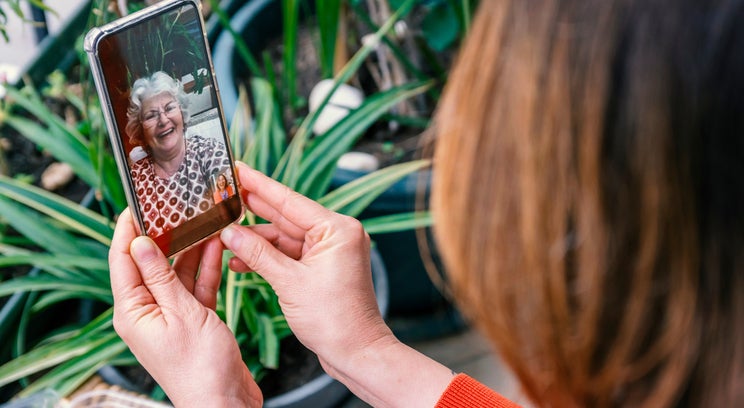
The “Well-being During the Pandemic” series is a follow-up to the “Say Yes to Well-being: How Daily Incremental Changes Can Transform our Lives” feature in the April 2020 ACC Docket. In the original article, the authors encouraged readers to incorporate daily incremental changes to create true, lifelong well-being with these six steps
- Inquire about your workplace resources;
- Find time to be quiet;
- Focus on physical health daily;
- Value meaningful connections;
- Establish priorities and boundaries; and
- Know it’s OK to ask for help.
In this series, the authors apply those methods to improve our well-being as the COVID-19 pandemic persists.
As we enter month seven of the pandemic (with the risk of a looming “second wave” this season), our ability to connect with people is still hampered by social distancing restrictions and fear of catching the virus. We must analyze how to find a remedy to improve our situation while staying safe.
IRAC method
As a throwback to law school, we are applying the IRAC method to each bullet mentioned above to reach the best conclusion on how to address the stress caused by our “new normal.” Previously, we’ve discussed staying active and finding quiet time during these chaotic times.
Today, we will continue with another of the six ways to increase your well-being with the IRAC method. As a refresher, we will:
- Identify the ISSUE;
- Apply the relevant RULE;
- Conduct an ANALYSIS; and
- Ultimately reach a CONCLUSION.
Today’s topic: Fostering meaningful connections
Staying connected is important under normal circumstances, and it’s even more critical during times of stress. Amid the pandemic, most of us have found ourselves physically isolated from everyone except for our household members. We canceled in-person celebrations, slashed travel plans, and cleared our calendars of everything that involved face-to-face interaction with others.
At the same time, we significantly increased the time we spend with others virtually — both professionally and personally. The question is whether virtual meetings, which are the new norm for social and work interactions, adequately address the concerns associated with the physical isolation we are all enduring.
Have they been making us feel more connected and less lonely? Have you connected with someone on a deeper and more meaningful level? Which interactions energize you and which ones leave you feeling depleted?
If the lack of quality connections is contributing to us feeling lonely and drained, how can we add more meaning to our interactions with others? Let’s approach it like any other matter that confronts us as legal professionals — with our trusted IRAC approach.
Issue
As the pandemic continues with no definite end in sight, we will likely experience increased concern and anxiety about finding meaningful ways to stay connected since we have lost access to some of our pre-pandemic communication routines. Your schedule may be filled with invitations to virtual coffees, speed networking sessions, “let’s catch up” happy hours, or Zoom birthday party celebrations.
Although these options give you an opportunity to stay in touch with your network, are they fulfilling you in meaningful ways and energizing you? These “touch base” connections may actually be contributing to you feeling overwhelmed and stressed-out, as they fill your calendar and keep you away from engaging in interactions that give you a sense of belonging, meaning, and happiness.
Rule
Prior to the pandemic, we had several opportunities for daily in-person interactions that helped to fulfill our need for social interaction. In addition to spending time with friends and loved ones, we dropped kids off at school and said hello to teachers and other parents; we saw casual acquaintances at the gym; and we smiled at neighbors and people we passed during runs, dog walks, and grocery trips.
We probably didn’t realize it at the time, but these interactions were important to us. Research supports the belief that these seemingly trivial interactions with our weak ties (aka, acquaintances) or strangers make you happier, less lonely, and more socially connected.
With self-isolation and business closures, opportunities for many of these casual encounters are limited if not completely gone. And when we do have these encounters, we are likely wearing masks, which hinders our ability to fully communicate non-verbally. As we try to recreate these encounters virtually, we may find ourselves overwhelmed by the number of virtual coffee meet-ups, and thus, not participate fully and feel less connected and lonely.
Analysis
The first step is to evaluate the hypothesis that numerous, daily interactions with a wide range of people other than friends and loved ones are essential to your health, enhancing your social well-being and decreasing loneliness. While these trivial encounters may be beneficial in regular times, they are not enough amid the pandemic. Self-isolation requires more than a passing virtual meeting.
We propose that the most effective way to combat loneliness during the pandemic is through meaningful connections — the ones that add depth and purpose to your interactions. These intentional quality encounters are critical to fostering a sense of belonging and energizing you to face the unprecedented challenges of today’s world.
Conclusion
The key to fostering the feeling of belonging is to connect with others in ways that are more than fleeting and instead require investment of some time and effort. Yet, the benefits can be exponential. Give yourself the gift of sincere connectivity by simply being intentional with how you interact with others, taking the time to ask meaningful questions, listen, and engage. In other words, have fewer interactions where you can mindfully participate to reap the benefits to your well-being.
How to add more depth and meaning to your connections
When it comes to connections, quality is better than quantity. Here are a few suggestions to get you started.
Be selective, intentional, and engaged with your virtual interactions
- Only accept invitations that add value. You don’t need to accept every invitation you receive.
- When you do accept, be fully present. If you accept an invitation to a Zoom call, be engaged with the topic and the other people on the call.
- Use virtual tools mindfully. If you use the available virtual tools wisely and mindfully, you may find they can enhance your well-being and need to connect. For example, use your smartphone to connect with specific people and communities that are important to you — instead of randomly scrolling through social media apps.
Explore a new hobby with someone else
- Decided to learn a new language? Invite someone else to join you. Do a weekly check-in to talk about what you learned, exchange tips, and practice together. Learning something new is always more fun with another person, plus you’ll have an accountability buddy.
- Is becoming a sous chef on your wish list? Involve your loved ones — in person or virtually. Take turns selecting recipes and cook together, whether you’re in the same kitchen or across the world. Laughs, homemade goodness, messy dishes, and good times are guaranteed.
- Find a pen pal. Yes, as in with a pen and paper. There is something gratifying in putting down your thoughts on paper and sharing them with someone else in this intimate and nostalgic fashion. Plus, the anticipation of receiving a letter from someone else can increase endorphins. Here are some ideas for inspiration.
- Work out with a family member. In our previous articles, we talked about the importance of fitting in physical fitness as an important element of well-being. Try connecting with your kids or significant other while working out together. Spend quality time with someone from a different generation
- Do you know your family’s history? All the details of how your parents met and why your grandfather has three middle names? Your family elders have many stories to tell — if you take the time to listen. Better yet, write down their stories for future generations to enjoy.
- Have a regular story time with your youngest family members. Set a special time weekly to get littles ones from your extended family together via video chat and read stories to them.
Reach out
- Pick up the phone and call. Commit to reaching out by phone or video to one person a week outside of your immediate family and put aside 20 minutes for that conversation. No, a text message will not do. Is there a college friend you haven’t talked to in a while? How about the kind neighbor down the road? Or maybe a fellow parent from your child’s class? Ask purposeful questions and then listen. If you sense anything worrisome, follow up.
- Talk to your loved ones. Daily. Period.
Get immersed in something greater than you are
There is no greater way to add meaning and purpose to your life than through service to others. Studies have shown that volunteering contributes to mental health, life satisfaction, and social well-being. It’s the ultimate win-win.
Plus, technology allows us to participate in remote volunteering — you can change someone’s day or even life trajectory from your own couch. Better yet, invite others to join in your volunteering efforts. To start, check out your ACC Chapter for pro bono for opportunities.
Volunteering during challenging times like the pandemic can also put your situation into perspective. Meaningful connections may look different to each of us, but what is important is that you focus on quality and depth of connections as opposed to quantity. Cancel your next Zoom social hour with 25 people and identify ways you can be more intentional about your interactions with others.
Aim for one to two in-depth, quality connections a week and put them on your calendar. Create your own plan based on what you like to do and take their first step to nurture meaningful connections.
Parting thoughts
How we survive and thrive during the COVID-19 pandemic — as well as afterward — is largely up to each of us. Let’s take incremental steps to enhance and improve our personal connections and keep in mind that by fostering meaningful connections, we can help each other as well.
Until we meet again for the next part in this series, stay connected and be well!
For more well-being tips, visit ACC’s In-house & Wellness Support Center. For more advice on coping during the quarantine, visit ACC’s COVID-19 Resource Center.






